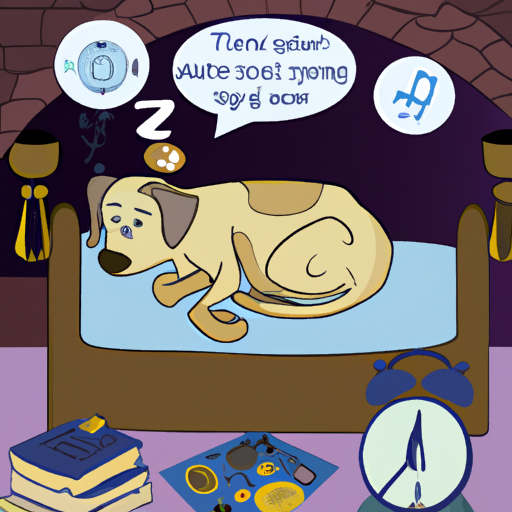Understanding Your Aging Canine Friend
As your four-legged friend begins to grow older, you might notice them spending more time sleeping or appearing less active than in their younger days. This is not because they’re lazy or bored, but because their bodies are naturally slowing down. They are responding to the physical changes that come with aging, just as humans do.
In fact, it’s not uncommon for senior dogs to sleep for up to 16-18 hours a day, compared to the 12-14 hours that younger dogs need. It is a completely natural part of the aging process.
The Biology Behind the Snooze
- Hormone Shifts: As dogs age, their hormone levels change. Particularly, the production of melatonin and serotonin – two hormones responsible for regulating sleep – increases. This leads to increased sleepiness.
- Physical Discomfort: Older dogs often suffer from health issues such as arthritis or hip dysplasia, which can cause discomfort and lead to increased rest.
- Cognitive Decline: Aging can also lead to a decrease in a dog’s cognitive function, similar to dementia in humans, which can disrupt their sleep/wake cycle and result in more sleep during the day.
Providing Comfort for Your Aging Dog
Your role as a caregiver is crucial during this stage of your pet’s life. Here are some ways you can provide comfort for your aging dog:
- Provide a comfortable bed: A good quality orthopedic bed can make a world of difference for a dog with arthritis or other joint issues.
- Maintain a regular schedule: Keeping a consistent routine can help your dog feel more secure and relaxed.
- Regular vet checks: Regular check-ups can help catch any potential health issues early, ensuring your dog gets the right treatment promptly.
When to Seek Medical Advice
While increased sleep is normal in older dogs, it’s important to watch for sudden changes in your pet’s sleeping patterns. If your dog is sleeping excessively or seems lethargic even when awake, it’s time to consult your vet. Here’s a simple table to help you monitor your pet’s behavior:
| Behavior | Normal | Concerning |
|---|---|---|
| Sleeping Hours | 16-18 hours | More than 20 hours |
| Activity Level | Reduced but alert when awake | Lethargic when awake |
| Eating Habits | Slightly reduced appetite | Refusal to eat |
FAQ
Q: How many hours should an older dog sleep?
A: It’s normal for an older dog to sleep around 16-18 hours a day.
Q: What can I do to make my older dog more comfortable?
A: Providing a comfortable bed, maintaining a regular routine, and regular vet checks can greatly improve the comfort of your aging dog.
Q: When should I be concerned about my dog’s sleeping habits?
A: If your dog is sleeping excessively (more than 20 hours a day), seems lethargic when awake, or refuses to eat, it’s time to consult your vet.
Remember, aging is a natural process, not a disease. It’s your job as a caregiver to make this stage of your pet’s life as comfortable and joyful as possible.



